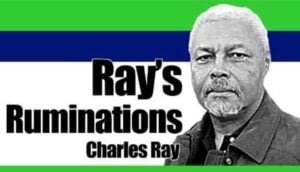
The Philippine Coconut Authority (PCA) is targeting around 102,000 coconut farmers in Negros Oriental to be enrolled under the National Coconut Farmers Registry System (NCFRS) so they can become eligible recipients of various government programs funded by the Coco-Levy Funds.
PCA Acting Provincial Coconut Development Manager Marita Somido underscored that registering with NCFRS is necessary before coconut farmers can avail of the various services and programs outlined in the Coconut Farmers and Industry Development Plan (CFIDP).
The CFIDP serves as a blueprint from the utilization of the billion-peso worth of Coconut Farmers and Industry Trust Fund (CFITF) which came from Coco-Levy Funds and Assets.
Currently, only 40,000 coconut farmers in the province have been given reference numbers by the PCA after they successfully registered with NCFRS.
“Katong niaging mga tuig, daghan ta na-register only lang walay mga attachment, mga documentary requirements. Igo lang sila ni-fill up sa form. Kanang mga requirements wala na na-comply sa atang mga ubang farmers. Naa sila form sa office pero di sila makarga sa system (We have attempted to register some farmers over the past years however, their application lacked documentary attachments. Some of them weren’t able to comply with these requirements. Their forms are still in the office but they were not encoded in the system),” Somido said.
The Republic Act 11524 which created the CFITF cited that qualified beneficiaries of the CFIDP are coconut farmers who own and till five hectares of coconut farm or an individual who does not own the land but has control and supervision over the cultivation of the coconut farm, a leaseholder with not more than five hectares of land, or tenants who tills or supervise the cultivation of the coconut farm, a farm worker or laborer, whether seasonal or itinerant, engaged in the harvesting of coconuts and in the processing of copra.
Somido added that an individual cultivating and growing more than 20 coconut trees can become a beneficiary of the CFIDP as long as that person registers first with the NCFRS.
The PCA official said each category of farmer must submit an application form along with a corresponding documentary attachment when registering with NCFRS.
For example, those who are tenants of the coconut farm should secure a certification from the land owner certifying that they are the actual tenants of the farm.
Somido said coconut farmers can visit the PCA office or their nearest local agriculturist office so that they can be guided with the application process.
Once they have submitted their application papers, PCA will forward this to their central office for final validation and encoding in the NCFRS system.
With this, Somido renewed her call for unregistered coconut farmers in the province to sign up with the NCFRS.
“If makatabang mo og disseminate na magpa-register ang mga coconut farmer sa NCFRS kay time will come especially kon ma-implement na gud ang tanang program sa CFIDP daghan gud farmer nga dili maka-avail because of the requirement na dapat NCFRS registered (I hope you can encourage coconut farmers to register with NCFRS because time will come when all the programs of the CFIDP will be fully implemented and many farmers will not be able to avail because it they are not registered with NCFRS),” Somido told the reactors of the Kapihan.
She also assured coconut farmers who have applications pending for approval that they will request their central office to fasttrack its verification and encoding in the NCFRS.
The PCA serves as the lead agency in the rollout of CFIDP programs
Thirteen other government agencies were directed to coordinate with PCA in the implementation of programs that are aligned with the seven components of CFIDP which are social protection, coconut farmers organization and development, hybridization, community-based farm enterprise development: farm rehabilitation and improvement, integrated coconut processing and downstream products, innovative research projects, and support services.
In 2022 and this year, the national government has allocated P5 billion from the CFITF to different agencies for their programs and projects under the CFIDP. – NWI




